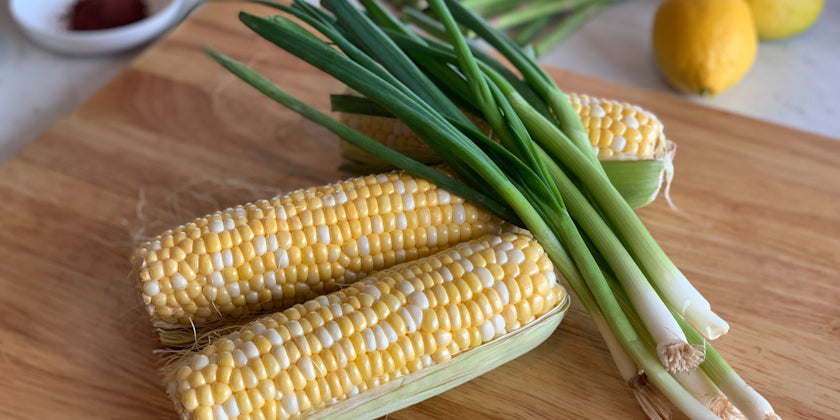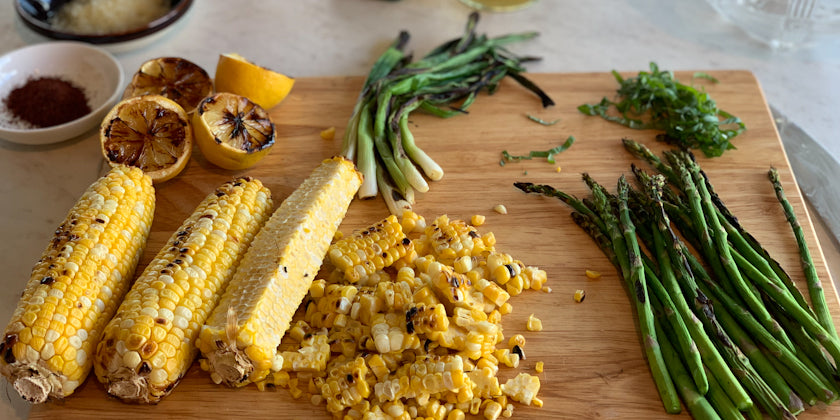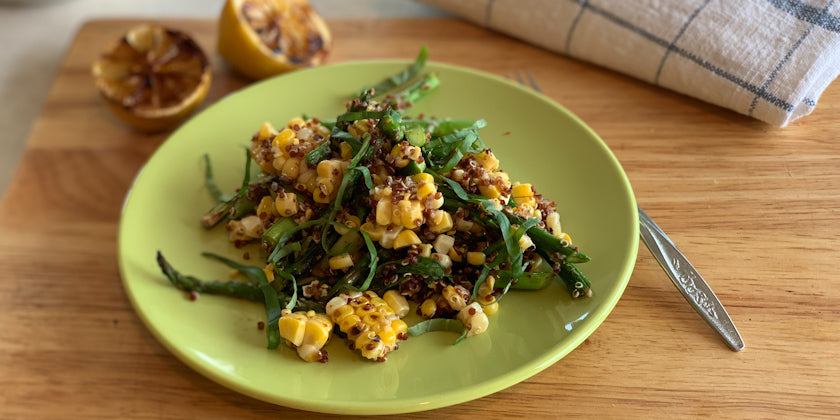Spring is upon us and along with the spring cleaning of our homes and yards comes the opportunity to clean up our diets as well! The Middle Burner Diet by DAO Labs is all about keeping the spleen and stomach (the "middle burner") performing at its best on a diet of mostly warm, slightly cooked vegetables along with foods that aren’t too damp. Think of your stomach as a pot on a stove, which we try to maintain at a temperature of around one hundred degrees, which is why we want to eat mostly foods with a warming post digestive temperature.
The spleen is the fire under the stomach which doesn’t like too much dampness as consuming too many damp foods will lessen your digestive fire. Examples of foods that are more damp are things like dairy, wheat, processed foods, alcohol and refined sugars. Foods that are less damp and more drying are beans, lentils, lightly cooked vegetables and spices. Cold and raw foods are more damp as well. Most people are fine eating more cool and damp foods but the typical Western diet will tend to cause more dampness. If you think you might have a damp constitution and want to eat more drying foods, you will be happy to know that you will notice a difference in just a few weeks as dietary therapy is very powerful and you will quickly regain balance. Limited physical activity and a damp climate can contribute to your overall dampness as well which can all lead to imbalances and stagnation within your body. In Chinese medicine, dampness effects the body's balance and causes illness and disharmony.

This recipe combines some beautiful fresh spring produce that I found at the market and the ingredients also align wonderfully with the Middle Burner. Fresh tender asparagus and sweet corn are nicely balanced with the more bitter scallion and acidic lemon. The Aleppo pepper and sumac are two great ingredients that we are borrowing from the Middle Eastern cuisine, the Aleppo pepper is sweet and mildly spicy while the sumac is tart and reminiscent of vinegar or lemon. The flavors of the grilled vegetables come together wonderfully with the seasoning to give you a delicious and balancing spring meal.
Basil – Warming, harmonizes the stomach
Corn – Neutral, Drains Dampness
Asparagus – Cool, Eliminates Dampness, Energizes Spleen.
Scallions – Warming and pungent with a bitter flavor, can alleviate the common cold or flu. Eliminates toxins, supports blood circulation and serves as a digestive aid.
Lemon – Cold, Transforms Damp Phlegm
Black Pepper – Warm, Disperses Phlegm, Warms Middle Burner, Clears Toxins
Quinoa – Warming Qi Tonic

Grilled Asparagus with Corn, Quinoa and Caramelized Lemon
Yield
About 4 Servings
Prep Time / Cook Time
20 minutes/ 15 Minutes
Ingredients
- Asparagus – Half bunch
- Corn – Three ears
- Scallion – Half bunch
- Basil – 3-4 Leaves
- Lemon – One
- Quinoa – 1/3 Cup
- Black Pepper to Taste
- Sea Salt to Taste
- Virgin Olive Oil - 3 Tablespoons
- Cotija Cheese About ½ Cup
- Aleppo Pepper - About 1-2 Tablespoons
- Sumac – About 1-2 Tablespoons
- Rice Wine Vinegar – About 2 Tablespoons
Directions
Rinse the quinoa and add to about 2/3 cup boiling salted water, cover and simmer for about 15 minutes or until the water is absorbed.
While the quinoa is cooking, grill corn, asparagus and scallion until just cooked.
Grill the lemon halves until caramelized. Cut the corn from the cob and scrape the milk from the cob with the back of your knife. Cut the asparagus and scallion into two inch pieces. Chiffonade the basil and juice the lemon. Mix all ingredients in a bowl and season with the Aleppo, sumac, vinegar, olive oil, salt and pepper.
Adjust seasoning to taste and sprinkle with the cotija, enjoy!
The recipes on The Way are intended as an East meets West look at food and its relationship to health and nutrition. Food is powerful, and every bite can either greatly benefit your system or effectively work against it. In Chinese Medicine, each grain, vegetable, meat, fruit, and spice has unique properties that can be harnessed to help us achieve and maintain balance in our bodies. Our recipes seek to incorporate some of the age-old principles of Chinese medicine into the culinary practices more familiar to the West.
















